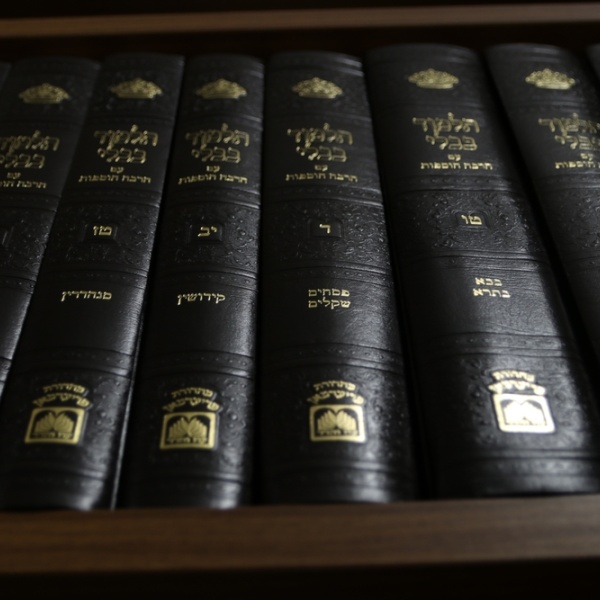
One of great and tragic figures in our Talmudic corpus is that of Rabbi Eliezer ben Hyrkanus. Hailed by his teacher, Rabbi Yochanan ben Zackai, as a “cemented cistern that does not lose one drop”, his greatness was such that “if all the scholars of Israel would be on side of the scale and Eliezer ben Hyrkanus on the other, he would weigh them all down” (Avot 2:8).
In a most famous and tragic story (see here), Rabbi Eliezer refused to accept the will of Sages in the case of the “oven of achnai”, regarding an obscure law of purity and impurity. While in theory, he was correct—as attested by a heavenly voice declaring that the law is like Rabbi Eliezer—his refusal to accept the ruling of the Sages that “Torah is not in heaven” led to his excommunication (Bava Metzia 59b). He lived his life in lonely isolation, unable to fully interact with his colleagues; and only as his soul departed was the decree of excommunication lifted (Sanhedrin 68a).
His fierce independence is all the more striking in light of his response when he was asked a question for which he had no tradition. “He said to them, do you force me to say something I have not heard from my teachers? In all my days, I never said anything I did not hear from my master” (Sukkah 28a). In several places, the Talmud records how questions posed to Rabbi Eliezer were answered with non sequiturs, lest he be forced to say something he did not hear from his master.
In a discussion regarding how the shair le’azazel was led to the desert, the Talmud records three questions the Sages asked Rabbi Eliezer. “If the animal is sick, may one carry it on their shoulders—a possible violation of carrying? If the one leading the goat was sick, may he appoint another in his stead? If they pushed the animal off the mountain but it did not die, should one go down and kill it? (Yoma 66b). Instead of clearly answering these queries,[1] he cryptically responded, “he can carry me and you; there should be peace with me and you”; and by quoting the verse “So perish all Thine enemies, O Lord” (Shoftim 5:31).
After a few more incomprehensible answers to some other questions—such as responding to a question of what the law is regarding a mamzer inheriting property with another question, asking what the law is regarding his performing Yibum—the Gemara notes, “not because he pushed them aside with words, but rather because he never said anything he did not hear from his teacher”.
Yet like all self-assessments, there is much that is missing. Rabbi Eliezer taught much that was original; his views on the oven of achnai were his, and his alone. Even more startling is to read the following: “Then Rabbi Eliezer sat down and taught things that had not been said to Moshe on Mt. Sinai, and his face radiated light like the sun and emitted light like the rays of Moshe, and no one could tell whether it was day or night. Rabbi Yehoshua and Rabbi Shimon Ben-Netanel went and told Rabban Yohanan Ben-Zakkai: ‘Come see Rabbi Eliezer sitting and teaching more things than were said to Moshe on Mt. Sinai’ (Avot de Rabbi Natan). Was Rabbi Eliezer the great traditionalist, refusing to say something he had not heard from his teachers, or was he the great innovator, the most original mind that the Jewish people had yet seen?
Maybe he was both. Being faithful to one’s teachers often requires great innovation. Life stands still for no one, and different situations require the same teaching to be applied differently. Yitzchak Avinu mimicked his father at every turn. When famine struck, he—following in his father’s footsteps—began to journey to Egypt. However, times were different; and G-d appeared to Yitzchak, telling him not to go.
As G-d does not speak directly to us, it is often most difficult to discern when and how we must change our response so that we actually are following in the footsteps of those who came before us. Rabbi Eliezer understood his teachers so well that he could apply their teachings to new situations. He was able at the same time to be totally faithful to their teachings as he said things that no one had heard before[2]. Rav Soloveitchik was once asked how he was able to come up with such original and creative ideas through the reading of text before him. He responded that his father taught him how to read between the lines[3]. We all live between the lines. We must work hard so that we are able to be faithful to our lives.
[1] The ability to clearly express oneself is so crucial to teaching that one was not allowed to give semicha to those who were hard to follow. Knowledge improperly communicated can actually be quite dangerous (see Sanhedrin 5b).
[2] The above is based on an idea I heard from Rav Herschel Schachter in the name of Rav Kuk.
[3] This, too, I heard from Rav Schachter.
